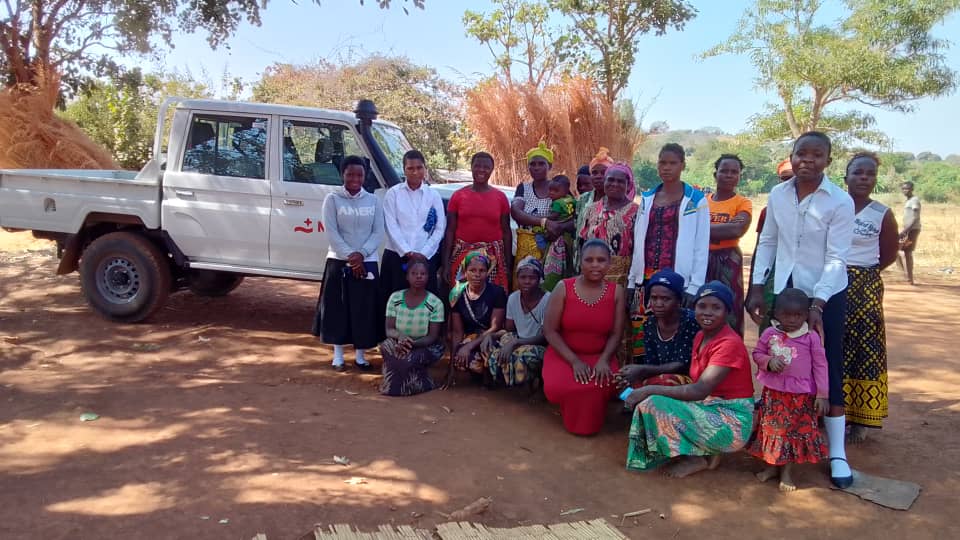Zambia is one of the least developed countries in Africa, with 54% of the population living on less than $1.90 a day and an average life expectancy of 63.5 years. Zambia, like many other African countries, has been battling the challenge of hunger for many decades. About 1.12 million children under the age of 5 in Zambia suffer from chronic malnutrition. With their programs in 45 rural villages in Central and Easter Provinces of Lusaka, DMI works to address the key issues of poverty, illiteracy, child labour, trafficking, gender-based violence, food insecurity, and unemployment.
WOMEN’S EMPOWERMENT
DMI’s women’s empowerment programs are designed to alleviate poverty and hunger. Organized in self-help groups, women can create and support one another in a savings and loan program to improve their household income through income generating activities. In addition to organizing vocational training in catering and tailoring, computers, and cosmetology for women and girls, women members are trained in business development to scale their small businesses. The groups also provide a platform where women can collectively solve community problems, promote personal hygiene and health and wellness, and increase their civic engagement by encouraging participation in local government.
CHILD DEVELOPMENT
DMI’s child development programs have two prongs: encourage school attendance and improve academic success, and promote civic engagement.
Oftentimes a barrier to education, especially for those in poor, rural villages, is that families cannot afford to purchase basic supplies. DMI identifies vulnerable children and provides notebooks, stationeries, school bags and sandals to continue and complete their schooling. They also created learning centers in an effort to motivate children to encourage regular school attendance and improve academic performance. DMI also offers extracurricular activities through organizations competitive sports.
Civic engagement is also a fundamental skill that DMI instills in young children. Young students are organized in parliaments to develop their leadership skills and improve their decision-making skills so that they can use their voices to advocate for themselves and safeguard their rights. Children learn parliamentary procedures, and gain an understanding of governmental roles.
SUSTAINABLE FARMING
DMI’s food security program teaches smallholder farmers sustainable farming practices so that they can increase crop production. In addition to regular training workshops, DMI staff provide farming tools and seeds to farmers in an effort to eliminate hunger and starvation, and also provide the farmer with the opportunity to create a livelihood.
COMMUNITY-BASED HEALTH
DMI believes that basic healthcare for all is a human right. Those who live in rural villages have poorer healthcare, especially elderly people, pregnant women, newborns, and those with chronic health conditions. Focused on prevention and wellness, Examining the social and environmental influences, DMI staff promotes community health by organizing community awareness and education programs to prevent and minimize the health risks of cancer, TB, HIV/AIDS, asthma, and COVID-19.

